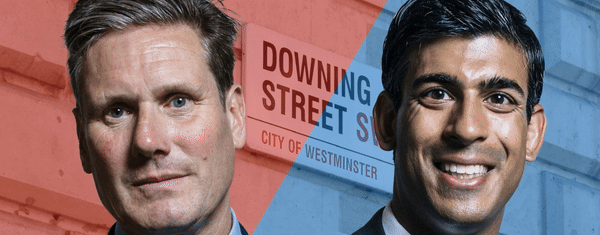
After months of hearsay and gossip, it has finally happened. Rishi Sunak took to the Prime Ministerial podium in a drizzly Downing Street and announced that a General Election will be held on Thursday 4th July.
What happens next?
With the King’s permission, the Prime Minister will have to dissolve Parliament. Experience suggests this will be 30th May. From this date, all MPs lose their parliamentary jobs and must win them back in the election.
Before then, Parliament must finish any business which it deems vital, in a period known as the ‘washup’. The most important legislation will be expedited by the Government over the next week, working with the Opposition, so that it is not lost when Parliament is dissolved next Thursday. Once past the date of dissolution, all legislation which has not passed through will be scrapped and cannot continue to the new Parliament.
The five week “short campaign” will then begin in earnest and a period of restriction comes into force called the ‘pre-election period’ or purdah. This is a time when governments (ministers, who continue in their roles, until replaced) and civil servants will exercise caution in making official announcements or making decisions that might influence the election campaign.
Along with all the usual campaign speeches, visits, and endorsements, the parties will also publish their manifestos. Whilst there is no set publication date, parties have historically released manifestoes 3-4 weeks before the election date, with Labour’s and the Conservatives’ usually coming out within a few days of each other.
Party Leaders can also be expected to take part in TV debates and longform interviews with several broadcasters. The dates for these debates are not set, nor is the participation of the parties’ leaders required.
On the day itself, polls will open at 7am and close at 10pm. Photo ID will be required to vote, and the media will stop reporting on details of campaigning or election issues throughout the day so as not to influence the result. School holidays are already taking place in Scotland at this stage, which some commentators have suggested could be a complicating factor north of the border, while the Orange marching season will be in full swing in Northern Ireland by then.
At 10pm an exit poll will be released, the pollsters’ prediction of the result. From then on, it’s just a question of waiting for the result.
The big election gear shift, by Tim Snowball, Head of Public Affairs
While not the autumn date most of us expected, Sunak’s decision to call an early election comes after several weeks in which both main parties had already begun to shift into campaign mode.
Whether it be Sunak’s Policy Exchange speech, combining fear and optimism about Britain’s future, or Starmer’s six pledges (that his troops have not yet had time to learn), we already have a sense of what the tone and tenor of the campaign will be.
Do not underestimate the gear shift happening behind the scenes right now.
Until today, election preparation has been a theoretical exercise. The preserve of relatively tight teams within each party. So far candidate selection, the manifesto processes, and a few carefully planned comms moments have been the primary signals of preparation. Now that changes.
Each party has a matter of days to completely recalibrate their entire extended operations to election mode, with centres of gravity shifting from No10 / LOTO to party headquarters, and the significant personnel churn this entails.
Leaders themselves shift from decision-focused roles to communications ones, with day to day campaign control passed to strategists. The functions of decision making in Government largely grinds to a halt, and SpAds need to decide whether to stay in Government or join campaign teams.
Campaigns are governed by tight messaging, set piece air war media initiatives, and extensive ground war operations (now highly supplemented by digital campaigns). In the coming days broadcasters will seek to secure dates and participants for the leaders debates, with Sunak holding disproportionate power to determine how big a feature these will play in the election campaign.
Campaigns often, however, come to be defined by the unplanned. How a leader fares when exposed to the perils of public interaction in the glare of 24/7 media. Policies that land unexpectedly badly. The onslaught of negativity and attack from a hostile media.
Labour go into this campaign the clear front runners. However, the Conservatives will not go down without a fight. Jeremy Hunt has already accused Labour of “lying” about their tax plans. Expect attacks to get personal fast.
How Labour will cope with this remains to be seen. This election will be an acid test of how match fit Keir Starmer, Morgan McSweeney and Sue Gray have got the Labour Party. Nevertheless, this is their contest to lose.
With the launch of our Election Hub, MHP Group will be keeping you up to date with the twists and turns of the campaign. Please contact [email protected] to discuss how the Public Affairs team can support you during and after the election.